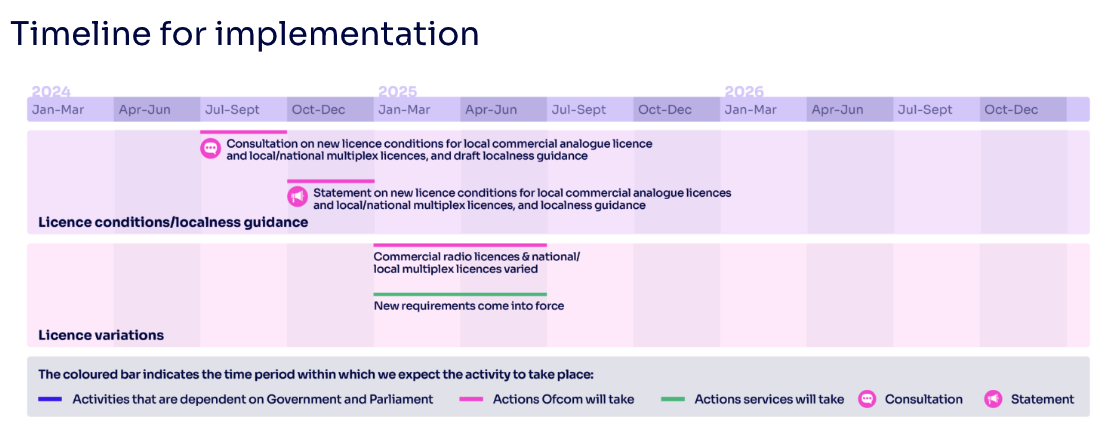
The Media Bill is another step closer to becoming a reality for radio stations after it was passed through the House of Lords today (Thursday).
Whilst it’s still many months away from radio stations being able to benefit from, it means there won’t be any delays following the announcement of the general election yesterday.
The Media Bill will now receive Royal Assent later today (24th May) and formally pass into
law as the Media Act 2024.
For radio, the biggest changes to legislation will be for Ofcom to allow local commercial stations to drop all local programming, change their music formats with ease, and continue to have free access to smart speaker platforms.
Multiplex operators will also be able to change stations without gaining approval, and Ofcom will work on introducing a new requirement for ‘locally gathered’ news on local radio.
However, proposed amendments relating to radio in the Media Bill were mostly ignored, including one to force Ofcom to allow new FM licences to be granted where there is a demand.
On Wednesday, Lord Storey CBE and Baroness Berridge suggested changes which would have allowed new FM entrants on an on-going basis, and made access to FM far easier for stations in rural areas where good Small Scale DAB coverage was difficult to achieve.
Lord Storey decried what local radio had become and contrasted recent changes in the sector to those in public service television, which had been praised in an earlier debate for spreading production into the regions. “Its almost like there are two furniture removal vans”, he said.
“The TV one is taking production away from London and out into the regions. The local radio one is bringing everything down to London.”
Ofcom’s recent investigation into Bauer’s news service for Greatest Hits Radio in Salisbury was mentioned. The operator had justified their trial of a countywide news service saying that the city-focused news bulletins for Salisbury “sounded jarring and parochial against industry-leading shows such as Ken Bruce and Simon Mayo”. Lord Storey said: “Much as I like Ken Bruce and Simon Mayo, and I know there is a role for commercial radio to cover the whole of the country, it shouldn’t be at the expense of our local radio stations.”
He noted that most FM licences were held by Bauer or Global with Ofcom refusing to accept any new applications – something his amendment aimed to address.
Baroness Berridge told Lords of her local radio station, Rutland and Stamford Sound, which she noted as “a great way to find out what’s happening in the local area”. But whilst Small Scale DAB might be a solution in heavily populated areas, in rural locations such as Rutland the signal dropped in and out as you drove around the area.
Baroness Berridge noted FM, which was far more robust, had been highlighted as the most resilient form of communication in the National Resilience Strategy and it was not going to be switched off in the near future. Her amendment sought to give priority access to FM in areas where digital radio was not a realistic solution.
Online radio station Banbury FM was praised by Viscount Colville for its local news service, coverage of local events and presenters reflecting life in the town, but Ofcom had refused to issue them an FM licence.
He spoke in favour of both sets of amendments, pushing for parliament to make the rules. He said: “once again this bill gives too much power to Ofcom to make the decisions which we in parliament should be making”.
However, Lord Parkinson speaking for the government rejected the amendments. He told the chamber forcing Ofcom to create a process for issuing new FM licences would be “unduly prescriptive” and “Ofcom should continue to have wide discretion in how it carries out its functions in respect of its regulation of radio services.”
In relation to allowing FM services where digital coverage was difficult to achieve Lord Parkinson said this would create “legal uncertainty about when the requirement applied and who would judge if a particular area was unsuitable for a digital radio service.”



